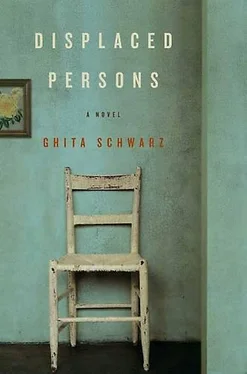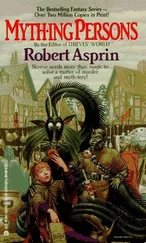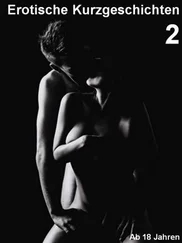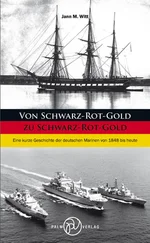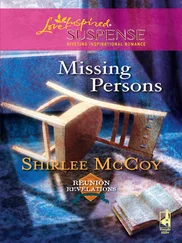She opened her lips. That is not Greek, she murmured in Polish.
No? The young man had smiled. How strange, he said. Because I have a Greek passport. He took it out of his pocket and showed it to her. You see? Greek.
A passport could get her into the western zones, where the British and American soldiers would protect them from the locals. A woman alone was not safe in the Russian zone, with the Red Army soldiers going after any woman they saw. Accompanied by a boy in a uniform, she was perhaps more protected. I have a ring, she said. As she said it, she touched the small blue stone in its tight setting. The one possession she had kept, but to give it up now seemed easy.
Ah, no, said the boy-she could see, suddenly, that he was a boy, no more than thirteen or fourteen, disguised in his uniform-no. Keep it until we board the truck. That ring can pay for both of us.
Was it generosity that he did not take it from her? He could have taken the ring and abandoned her to cross into Germany alone, but he had not. They rode with several others, Romanians, four men and a woman, whose dark clothes and mouths emitted a muddy odor. They murmured small greetings in Yiddish, nothing more. If they were to communicate it was to be in Hebrew, which sounded like Greek, the boy said. Fela knew very little Hebrew. Only the boys had religious lessons in her family, modern though her father had tried to be. Chaim-he had given only his first name-had some difficulty himself. His hometown was not so far from her own, Mlawa, but if he had had a religious education at all, it must have stopped with the war. But he had the phrases, could rearrange words from prayers to make a sentence. He could make a sentence in any language, he said, with a seriousness that made her decide not to call him a braggart, not to joke with him. Even sitting in the back of the truck he was careful and alert. He stretched and brushed the dust off his uniform every hour until they crossed into the British zone in Germany. She grew fond of him on their journey, as she would a brother with whom she had lived all her life but only just now started to know.
YES, SHE WOULD WAIT to bathe until Chaim awoke to keep watch. She moved into the kitchen. The widow had kept the sink clean, but dust from the bombings had gathered on all the shelves, a thick layer of white and gray. She would have to clean the house from top to bottom. There was little furniture-two beds, one sofa, one chest of drawers-and only a bit of crockery. Yet the rooms were wide and the wallpaper in good condition. Perhaps the possessions had been sold.
Chaim came in as the coffee boiled, dressed in a shirt left for him by Pavel and the pair of trousers he had worn to sleep, his feet in a pair of torn socks.
He sat in a chair as she put a plate before him. Has he gone for more food?
She nodded. The coffee burned her tongue a little. She put the cup down again and blew at the steam. Chaim had a slow way of speaking, rolling his words around his tongue. He spoke slowly, but he ate fast. In the smugglers’ truck he had murmured words to himself, Polish and German and Russian, talking himself to sleep. Meat, soup, spoon, fork, knife. Once she had looked at him directly as he moved his lips, and he had seen her, but he had not stopped. Milk. Chicken. Chocolate. Porridge. Potato. Still a child.
Careful with the bread, Fela said. You lose crumbs when you rush.
Her own place at the table was clean, and she smoothed out the paper she had found in the widow’s drawer and looked down at her letter. Bluma , it said. Dearest Bluma .
What do you write there? His mouth was full with bread and coffee.
I write to my sister. I know she-I think she-but the others. Fela looked at the neat Polish letters on the page. I am alive .
That was all she had written. She wanted to think out her words before she scratched them onto a valuable scrap of paper. Chaim was looking at her. She is in Palestine, Fela added. That’s why I know she-I believe she-of course maybe she has heard something-her address I always remember. I remembered it everywhere.
So write to her, said Chaim. Don’t let me disturb you.
If you don’t want to disturb me, eat.
I have heard nothing. Who else has written to you?
Are you reading my letter?
No, no.
You look like you are reading it.
She got up to pour him more coffee. Pavel said he would try to find sugar from someone. Do you know where he will get it?
I can guess, said Chaim. He leaves this area, that’s certain. Did you see at the end of the street? There’s a row of rubble, then half a house, just open, no roof, no upper floor. Yet in our row of houses it looks as if nothing has happened.
Fela pushed her letter to the side of the table. I don’t want anything to stain it.
What do you tell her?
Nothing. I tell her nothing. There is nothing to tell her. Just like you. Nothing to tell.
Chaim got up from his plate. I told Pavel my name last night. Traum. We don’t have to be brother and sister now.
All right, said Fela.
I’m going to wash, he said.
Fela shook her pen. Still a little ink. She wanted to write: Do you remember Sieresz, who bought leather on credit from Father every Christmas? I saw his brother. He asked me: For what did you come back? That to me was worse almost than-
But instead she would be brief. I lost Moshe , she wrote. I am alone.
IN JUNE PAVEL ORGANIZED a second bicycle. The German girl who sold it to him had tied a wooden crate onto a piece of metal above the back wheel. She used the crate as a basket to carry food back from the market. He could see on the girl’s face her regret at giving up the bicycle; but hunger was bigger than regret. So she would walk! He had the girl ride alongside him until half a kilometer away from the house. He gave her an extra tin of pork for her trouble, and in the look on her face he saw not just gratitude for the food, but relief. Yes, they were still a little afraid, these Germans who had lived near the large camp during the war. Now that the armies were here, ready to condemn and to hang, these Germans were afraid of the Jews.
Pavel presented the gift to Fela in the garden. He called out to her from the front of the house, near the kitchen window. He stood in between the two bicycles, his face somber. He did not want to look too arrogant to her. Still, look what he had done in an hour at dawn! A good piece of craft, this little thing.
But she looked skeptical when she saw him.
He felt offended. For you, he said. I didn’t steal it.
No, no. Her neck flushed; a red spot appeared on each cheek. I do not know how, she said.
No? Pavel smiled.
My father never permitted us, she said. But I always loved the way it looked, a group of young people, especially the girls, with their skirts floating over the wheels. It was always the very sophisticated ones in the town who went off on outings. They knew how to ride so as not to entangle their clothing.
I will teach you, said Pavel. It is very easy.
She unbuttoned the lowest button of her dress, so as not to rip the cloth over the metal frame. He could see she was unsure about letting him touch her. He let her lift herself onto the seat of the bicycle. One foot, on tiptoe, still touched the ground.
Don’t worry, he said, walking behind her. I have you. He held the basket at the back of the seat steady. His arm did not even brush her dress, which fluttered a bit at the waist. Look, even if you lift your foot, you won’t fall.
She pedaled hesitantly, one meter, two meters, the bicycle shaking under her weight. Pavel stepped quickly after her, right hand gripping the crate. He could see his forearm tensing. Yes, his arms and hands grew thicker and stronger every day.
Читать дальше
